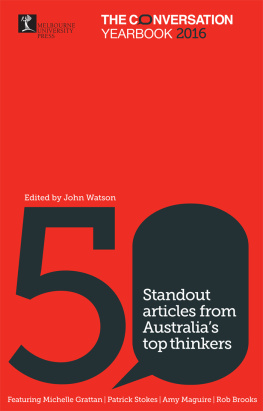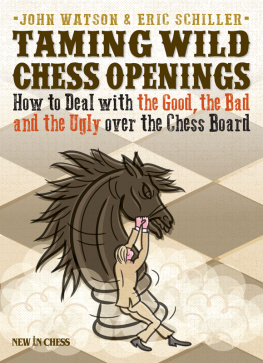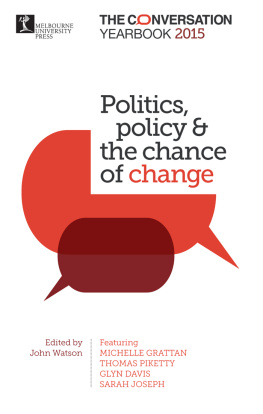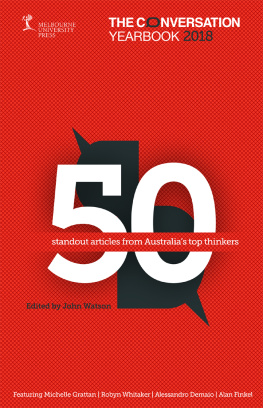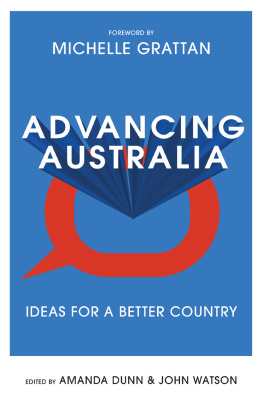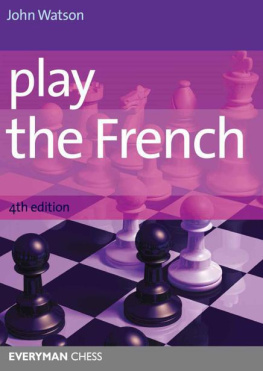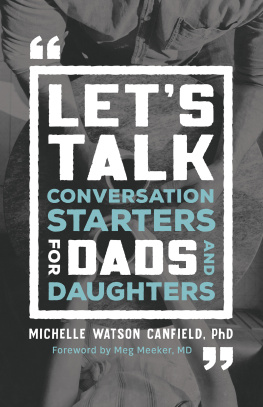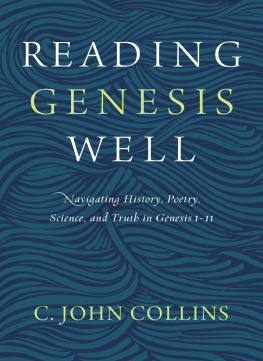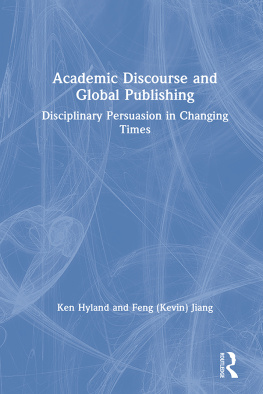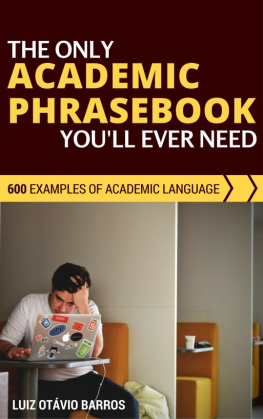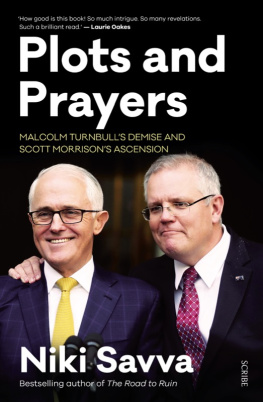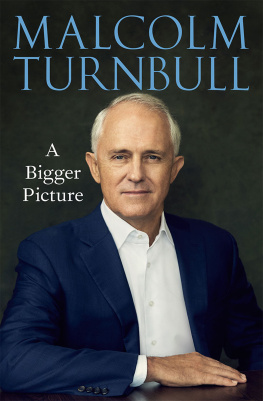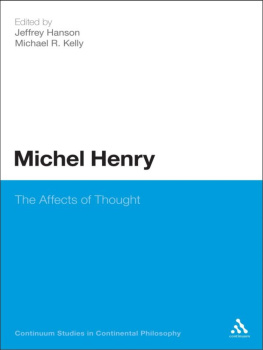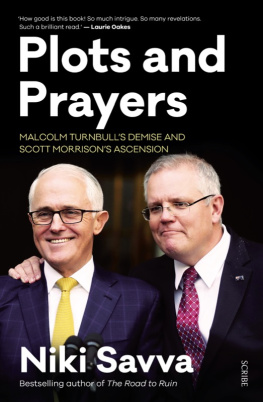MELBOURNE UNIVERSITY PRESS
An imprint of Melbourne University Publishing Limited
Level 1, 715 Swanston Street, Carlton, Victoria 3053, Australia
www.mup.com.au
First published 2016
Text 2016 remains with the identified original authors
Design and typography Melbourne University Publishing Limited, 2016
This book is copyright. Apart from any use permitted under the Copyright Act 1968 and subsequent amendments, no part may be reproduced, stored in a retrieval system or transmitted by any means or process whatsoever without the prior written permission of the publishers.
Every attempt has been made to locate the copyright holders for material quoted in this book. Any person or organisation that may have been overlooked or misattributed may contact the publisher.
Text design and typesetting by Typeskill
Cover design by Mary Callahan Design
Printed in Australia by McPhersons Printing Group
National Library of Australia Cataloguing-in-Publication entry
The conversation yearbook 2016: 50 standout articles from Australias top thinkers/edited by John Watson.
9780522871074 (paperback)
9780522871081 (ebook)
History, Modern21st century.
AustraliaSocial conditions21st century.
AustraliaPolitics and government21st century.
Other Creators/Contributors: Watson, John, editor.
Contents
Misha Ketchell, Managing Editor, The Conversation
Brendan Zietsch, University of Queensland
Tim Olds, University of South Australia
Matthew Sharpe, Deakin University
Lisa Iverach, Macquarie University and University of Sydney; Rachel Menzies and Ross Menzies, University of Sydney
Paul Maruff, Florey Institute of Neuroscience and Mental Health
Liam Viney, University of Queensland
Jonathan auf der Heide, University of Melbourne
Julia Kindt, University of Sydney
Shaun Carney, Monash University
John Dryzek, University of Canberra
Remy Davison, Monash University
Helen Hodgson, Curtin University; Kevin Davis, Monash and Melbourne Universities
Greg Barton, Alfred Deakin Institute for Citizenship and Globalisation and Deakin University
Clarke Jones, Australian National University; Jan Ali, Western Sydney University
Amy Maguire, University of Newcastle
Michelle Grattan, University of Canberra
Felicity Meakins, University of Queensland
Linda J. Graham, Queensland University of Technology; Helen Proctor, University of Sydney; Roselyn Dixon, University of Wollongong
Thalia Anthony, University of Technology Sydney
Amanda Porter, University of Technology Sydney
Karin Verspoor, University of Melbourne
Rob Brooks, UNSW Australia
Marcus Foth, Queensland University of Technology
Stephan Winter, University of Melbourne; Nicole Ronald, Swinburne University of Technology; Ronny Kutadinata, University of Melbourne
Rod Tucker and Thas Ampalavanapillai Nirmalathas, University of Melbourne
Kim Dovey and Elek Pafka, University of Melbourne
Christina Ho, University of Technology Sydney; Eve Vincent, Macquarie University
Tony Matthews and Jason Byrne, Griffith University
Chris Thompson, Monash University
Amy Reichelt, RMIT University; Clare Collins, University of Newcastle
Vincent Ho, Western Sydney University
Elspeth Probyn and Kate Johnston, University of Sydney
Darren Curnoe, UNSW Australia
Fabrizio Carmignani, Griffith University
Stephen Parker, University of Canberra
Wendy Stone, Swinburne University of Technology; Emma Baker, University of Adelaide; Liss Ralston, Swinburne University of Technology; Peter Phibbs, University of Sydney; Rebecca Bentley, University of Melbourne
Mark Wooden, University of Melbourne; Sue Richardson, Flinders University
Tim Harcourt, UNSW Australia
Paul X. McCarthy, UNSW Australia
Ove Hoegh-Guldberg and Tyrone Ridgway, University of Queensland
David Blair, University of Western Australia
Elizabeth Leane, University of Tasmania
Gisela Kaplan, University of New England
Andy Baker, UNSW Australia
Rachel Buchanan, University of Melbourne
Ian Freckelton, University of Melbourne
Georgina Ramsay, University of Newcastle; Lucy Fiske, University of Technology Sydney
Megan OConnell and Bill Lucas, Victoria University
Usman W. Chohan, UNSW Australia
Patrick Stokes, Deakin University
Foreword
Misha Ketchell
Managing Editor, The Conversation
Watching the news in 2016 there was nothing quite so striking as the global emergence of a post-fact political discourse. It was very much in the air with the media dominance of Donald Trump, the US presidential candidate who believes climate change is a hoax and vaccines cause autism. Australia wasnt immune either. Pauline Hanson claimed were in danger of being swamped by Muslims, currently just 2.2% of the population. Her One Nation colleague, Malcolm Roberts, seriously thinks a tight-knit cabal of major banking families in the world is advancing corrupted climate science with the aim of global domination.
The disconcerting progress of this new unreality was summed up before the UKs Brexit vote by Michael Gove: people in this country have had enough of experts.
Clearly something has gone terribly wrong. According to philosopher Patrick Stokes, in a terrific article that concludes this collection, hostility to experts has become a corrosive feature of modern political society. But Stokes doesnt see the answer in merely debating crackpot theories with a barrage of facts and evidence. He sees the need for a far more fundamental project to rebuild trust between the public and the experts we rely on to make sense of an increasingly complex world.
This is what The Conversation exists to do. We believe that facts matter and that evidence and understanding are crucial to meaningful public discussion. But for people to trust experts on important issues, they have to have access to their ideas, and those ideas needs to be expressed in plain and understandable language.
The Conversation combines academics with professional journalists to translate new research and help make sense of complex issues. The ultimate aim is to inform debate and rebuild trust between experts and the public.
This yearbook is a small sample of The Conversations daily output, some 50 articles chosen from more than 5,000 that will be published this year alone. While the pieces published here have been presented in broad themes, the topics they cover are disparate, ranging from Michelle Grattans scrupulous assessment of Malcolm Turnbulls first year as prime minister to Amy Reichelt and Clare Collins weighing of the evidence as to whether eating chocolate really improves your brain function.
What distinguishes the articles in this collection is exemplary academic writing directed at a curious general reader. No matter what the topic, each piece exists to serve the broader public interest by injecting facts and evidence into public discourse.
Id like to thank the editor of this yearbook, John Watson, for his careful and diligent work curating this collection, as well as Todd Shilton, Debbie Dickinson and the editors at

